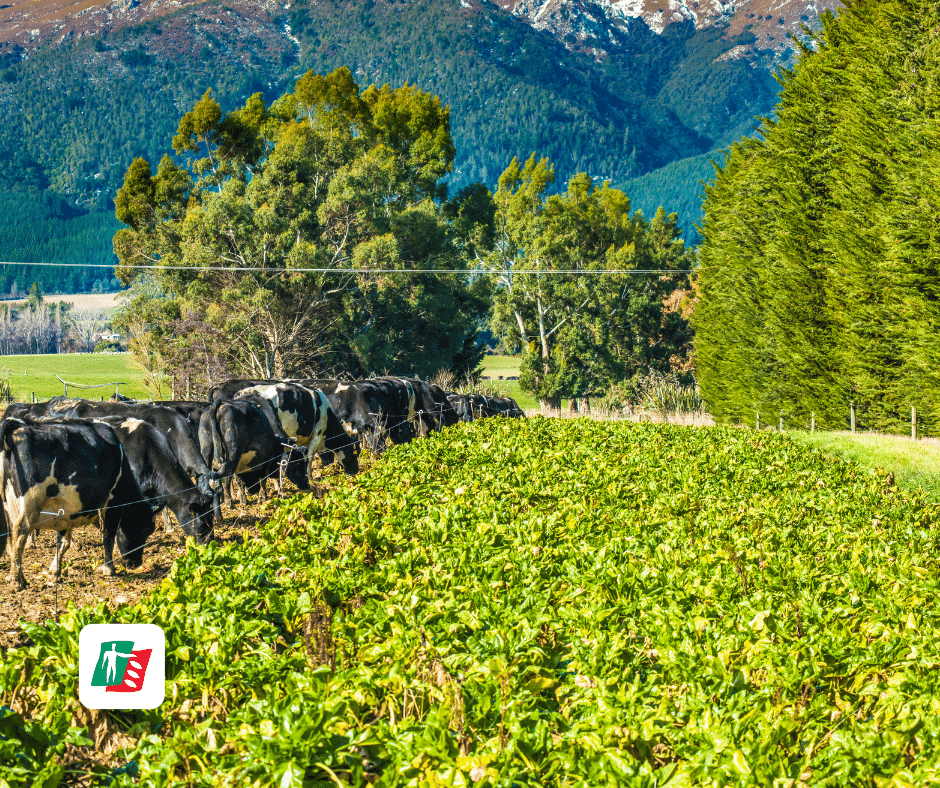Superior Production Gains from Fodder Beet
Fodder beet offers several advantages over other crop options. For ruminants to perform optimally, they require a balanced intake of protein, carbohydrates, and fibre to maintain proper rumen function. Fodder beet excels in this regard, providing excellent crude protein levels in the leaves and abundant carbohydrates in the bulbs. When incorporated correctly into a balanced diet, fodder beet supports impressive production gains across all stock classes and various farming systems, including sheep, beef, deer, and dairy.
In dairy systems, particularly during wintering, fodder beet has been shown to enhance body condition score (BCS) significantly, often outperforming other popular options like kale. This high energy intake, coupled with a well-balanced carbohydrate-to-protein ratio, leads to not only better BCS gains but also improvements in milk production and reproductive performance.

For example, a Southland trial compared cows fed fodder beet with those fed kale, both supplemented with pasture baleage through winter. The trial monitored body condition changes and early lactation performance. Results indicated that “cows wintered on fodder beet exhibited better reproductive performance, including a higher three-week pregnancy rate, as well as greater average milk solids, fat, and protein yield compared to cows wintered on kale”.
Read more about the trial here : Impact of winter fodder beet or kale allocation on body condition score and early lactation performance of dairy cows


